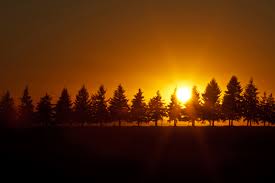Untouchable by Mukul Raj Anand
Untouchable by M R Anand
Introduction : M R Anand :-
| Novelist | Mukul Raj Anand |
|---|---|
| appearance | |
| Born | 12 dec 1905, Peshawar |
| Died | 28 Sep 2008, Pune |
| Era | 20th century |
| Genre | Realistic fiction |
| Notable works | Untouchable, Coolie, Seven ages of man |
| Awards | International peace prize, Padma Bhushan, sahitya akademi award |
| Founded | MARG |
🔹He developed friendship with bloomsbury group.
🔹Mulk Raj Anand supported India's freedom struggle. He also supported freedom movements in other parts of the world especially Spain during the Spanish civil war.
🔹He was a journalist during the World War 2, where he served the BBC.
🔹Mulk Raj Anand highlighted the prominent figures' contributions towards Indian freedom struggle and their progressive views on humanism.
🔹He was conferred with the prestigious Sahitya Academy Award for The morning face in 1968.
Table of Contents:
Untouchable
The novel untouchable published in 1935 is a short novel (novella) by Mulk Raj Anand in Indian English literature. Anand along with RK Narayan and Raja Rao forms the great (major) trio.
M R Anand impressed Gandhi and managed to get his Novel untouchable revised by him. Following Gandhi's advice Mulk Raj removed about a hundred pages in which Bakha is brooding like a bloomsbury intellectual.
The novel untouchable is one of the most celebrated novels in Indian English literature. It renders a realistic depiction of the life of an untouchable boy named Bakha, who was a sweeper.
In the preface E.M. Forster writes :
"Bakha is a real individual, lovable, thwarted, sometimes Grand, sometimes weak and thoroughly Indian. Even his physique is distinctive; we can recognise his broad intelligent face, graceful torso and heavy buttocks as he does his Nasty job or steps out in artillery Boots in hope of a pleasant walk through the city with a paper packet of cheep sweets in his hand".
Bakha belongs to the community of untouchables. These sections of people suffer a lot, because they are by birth regarded as outcast by others. Mulk Raj Anand has brought to limelight the artificiality and hypocrisy of the upper caste men, especially the man like Pandit Kali Nath, who preach good things in life but are corrupt to the core.
The novel untouchable is the story of a single day in the life of Bakha. It presents the account of the humiliation and struggle that he and other lower caste people had to go through.
Bakha's father whose name is Lakha wakes him up with abuses. He orders his son to join the duty that is to clean the toilets. Bakha is totally unsatisfied with his profession as a toilet cleaner and wanted to pursue a better life by educating himself. Bakha was also subjected to mental and physical torture or abuse mainly by the upper class people.
Sohini is bakha's sister. She has Globular breasts and is attractive. She also suffers the same torture from the upper classes. She is not allowed to draw water from the caste-well. The lower caste people were restricted from drawing water, from entering temples or touching anything as it was believed that things would become polluted if they are touched by the untouchables. She had to depend on the mercy of a gentleman who gives her the water she needed.
Kalinath with an evil intention pours the water into Sohini's pot. He asks her to come to his place to clean the courtyard. Sohini goes to his place but he makes "improper suggestions". Then she starts screaming, but he inversely puts the blame on her that she touched and polluted him. A crowd of upper caste people support KaliNath. Mohini feels humiliated. Somehow Bakha manages to send her home.
Later that afternoon Bakha attends the marriage of Ram Charan's sister whom he loved once but could not marry due to their class differences. Later in the evening Bakha goes to play hockey match at havildar Charat Singh's place.
In the midst of the game a little boy is wounded and Bakha tries to help him; but he is rebuked by the boy's mother for having polluted her son. Bakha feels quite dejected as he faces humiliation all around him.
The novelist provides three alternatives to ensure a better life to overcome the problem of untouchability. These are as follows: one is conversion, second is education and the third is technology.
1) Conversion : Bakha was advised by Colonel Hutchinson to convert to Christianity that is devoid of any caste differences.
2) Education: Gandhi's views on untouchability and education as he calls the untouchables the harijans meaning people of god.
3) Technology : Bakha meets poet named Iqbal Nath Sarshar, who informs him about new technique of cleaning faecal matter automatically that is toilet flush machines.
Untouchable has the unity of time. If you treat the town Bulashah as one place there is the unity of place. The novel has only one plot hence there is also the unity of action.
To Conclude, Mulk Raj Anand has written many novels like Coolie, two leaves and a bud, the village, the big heart etc but among all these novels untouchable is most compact and most popular. This novel has been translated into many languages of the world.
Themes & Issues in Novel Untouchable
Untouchability:
Mulk Raj Anand's primary purpose in writing the novel untouchable was to bring about a change in the perception that people had in their mind regarding the untouchables.
In his Novel we get the description of the uncongenial place where these untouchables live. The absence of drainage system had, through the Rains of various Seasons, made the quarter a marsh; which gave out the most offensive smell. The people of the untouchable caste are washer men, grass cutters, sweepers, barbers and others, who lived in a confined world with each other and socially isolated from the rest of the village.
The plight of the untouchables is depicted through the character of Bakha. We are told that how accidentally one day he touched an upper caste Hindu in the market and the person became so infuriated that he abused Bakha by addressing him such words as son of a swine, dirty dog and so on.
Everyone present in the situation just saw him getting insulted but no one spoke a single word against it. Bakha was so ashamed. He fell down on his knees and silently listened to all the insults that was targeted towards him. At the last a Muslim tongawallah rescued him from the situation. Bakha was so Shattered by the incident that he burst out into anger, "why are we always abused? Because we are sweepers. Because we touch dung. They hate dung. I hate it to".
Untouchability is one of the most evil practices of caste system in India which prevails even today in many of the socially and economically backward places. Some great personalities like Dr. Ambedkar and Gandhiji have spoken on this issue and its eradication from the society for the upliftment of the people.
They have pointed out that no society can ever make a progress if its people are prejudiced against this kind of castiest mentality.
In the course of the novel we see Gandhi appearing in one of the last scenes and he delivers a lecture on untouchability and convinces the people to leave this practice and encourages Bakha and other people in his community.
Social realism and cast discrimination:
The central character of the novel Bakha is ill treated by the high caste people throughout the novel. The novel comprises of events of a single day in his life. From the morning itself we are given the glimpses of how he is subjected to abuse and treated like an animal.
High caste hindus throw away a packet of cigarettes at him and when he is hungry, he is given chapattis in a way as food is thrown to a dog. His experience with a Hindu at a Marketplace with the upper caste is suggestive of how much the place was steeped with the caste discrimination.
Bakha is humiliated and helpless through this all but he remains silent at the situation because he is helpless, there is nothing that he can do about it. Later his frustration is seen when he says, "all of them abused, abused and abused. why are we always abused? because we are sweeper? Untouchable? I am an untouchable!".
Religion :
Religion plays an important role in the novel for we see its influence upon the people of the society to a great extent. Col. Hutchison advises Bakha to adopt Christianity to overcome his deplorable condition. However, he is sceptical about converting his own religion and suspicious about the missionary's intension.
Critical analysis:
Anand captures the predicament of untouchables and presents the harsh reality before us. We see that they are denied even the basic needs of the life that is water. The novelist is indeed quite powerful in his rendering of the light on the untouchables with his acute observation and the regional language that he adopts. The use of regional language and abuses clearly shows the social realism with which he has presented the Curse of untouchability.
He also criticizes the people of upper caste in the course of novel. He tries to show how people are using religion as a basis for dividing the society into hierarchical orders and then misuse it for their own benefits.
Mulk Raj Anand in the novel through the character of Kali Nath successfully presents the hypocrisy and corruption that some people are engaged in the exploitation of ignorants and the downtrodden.
He shows how KaliNath invites Sohini under ill intentions then turns the blame onto her of polluting him. Through this episode Anand tries to present a harsh reality that not all preachers of religion are morally right at their heart and that we should not welcome blind beliefs and caste discrimination in the name of religion.
Anand's primary concern was to a lift this lot of people who are socially unaccepted and isolated. By bringing in Mahatma Gandhi's episode Anand has not only provided a solution for the plight of the untouchables in the novel but also highlighted the evil practices that need to be removed from the society.
Gandhi's comments that the predicament of the untouchables is both a moral and the religious issue. He calls "untouchability is the greatest blot on Hinduism" and regards it Satanic to think that anyone in Hinduism as born an untouchable.
Gandhi holds the view that untouchables have to cultivate the habits of cleanliness and be free from unhealthy practices such as drinking liquor and gambling. Gandhi regards All Indians as equal and expresses his desired to be Reborn as an untouchable. Gandhi's words instil a ray of hope in Bakha and other people.
The closing of the novel appropriates bakha's inner conflict between the enthusiasm and his naivitie. This is a consequence of what bakha has experienced during the whole day and its indelible impact upon him.
Bakha's interaction with the poet Iqbal Nath Sarshar and his ideas about the flush toilet system also provide him with some hope for the future. The novelist hints that the situation of this exploited class will undergo a change in the future and they will no more remain exploited in the times to come.
Narrative Style & Technique
Mulk Raj Anand follows the stream of consciousness technique which was a dominant characteristic in most of the writings of the period especially employed by woolf, Joyce and others before him.
We can easily see the treatment of the central character Bakha is psychological. The stream of consciousness method that is used as to develop deep into the mind of the central character who is tormented by the treatment of the society towards him and his fellow beings.
It can be regarded as a psychological novel as well for it gives us vivid account of Bakha's thoughts and ponderings, most of which are fragmentary in nature.
The novel has a dream sequence too in which we see Bakha finds himself surrounded by a group of monkeys. The novelist's purpose through this was to show bakha's views about the world which even in his subconscious mind haunts him and confines him within a bleak world.
There are also a number of flashbacks used with symbolic images and thoughts combined with an awareness of the reality that render some modern touch to the novel.
Anand uses a number of images that are recurrent in the novel mostly the image of sun and the river. The sun is the symbol of creativity and the vital force of life and is seen as a contrast to the lives of the people. The image of the river is symbolic of the anguish and grief of the people as it stands for the flow of existence which is past change.
Anand also use as a number of words, idioms phrases in English which reflected the Indian way of speaking. Some of the words are used in Hindi and Punjabi languages which have not be translated into English like Girija ghar, jalebi, Babu harijan etc. Some of the abusing words in the Hindi, on the other hand, have been translated into English like son of a pig, dog etc.
The aim was to capture and retail the flavour and colour of a particular village in the Punjab during the pre-independence times and give a realistic representation of it.
.jpeg)
.jpeg)

.jpeg)
.jpeg)

.jpeg)




Comments
Post a Comment
Your Views and Comments means a lot to us.